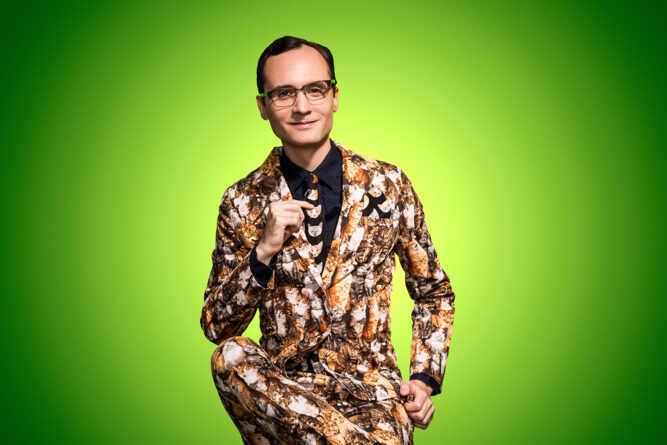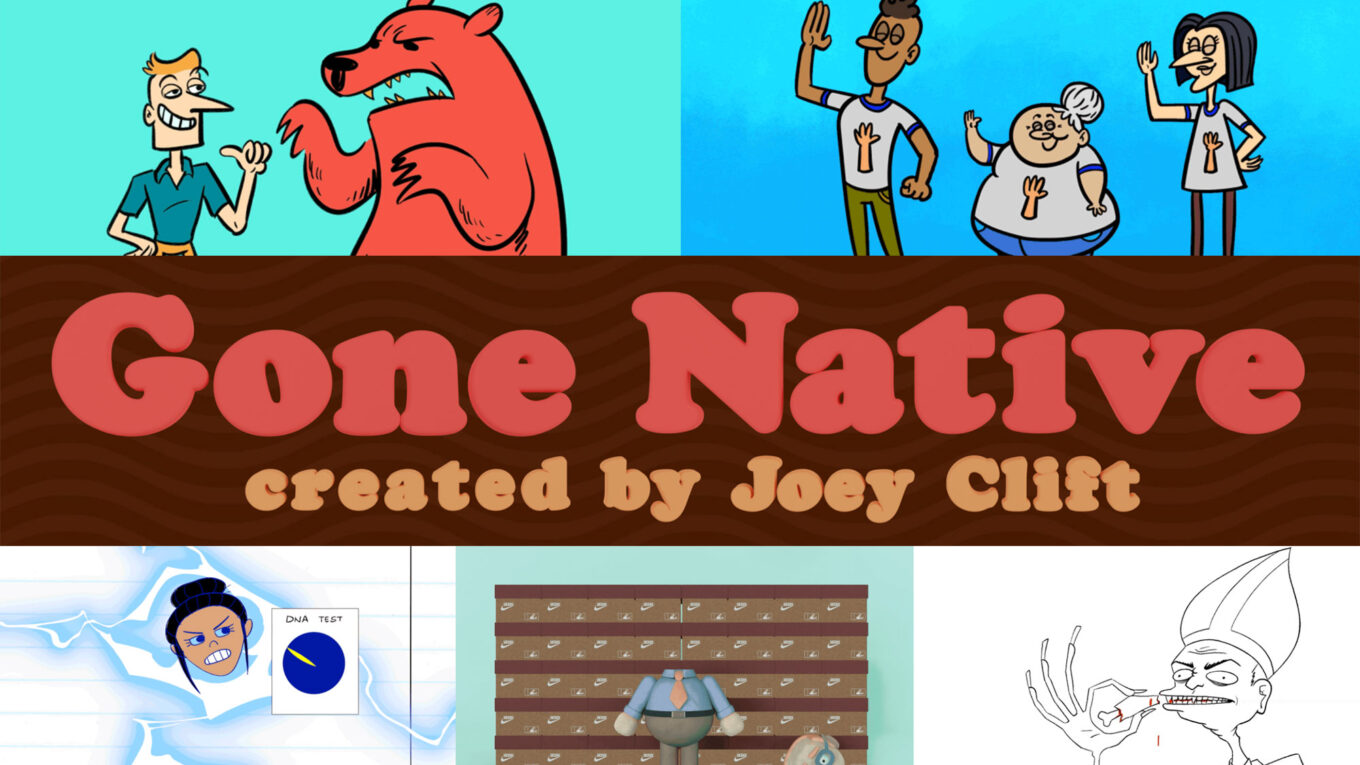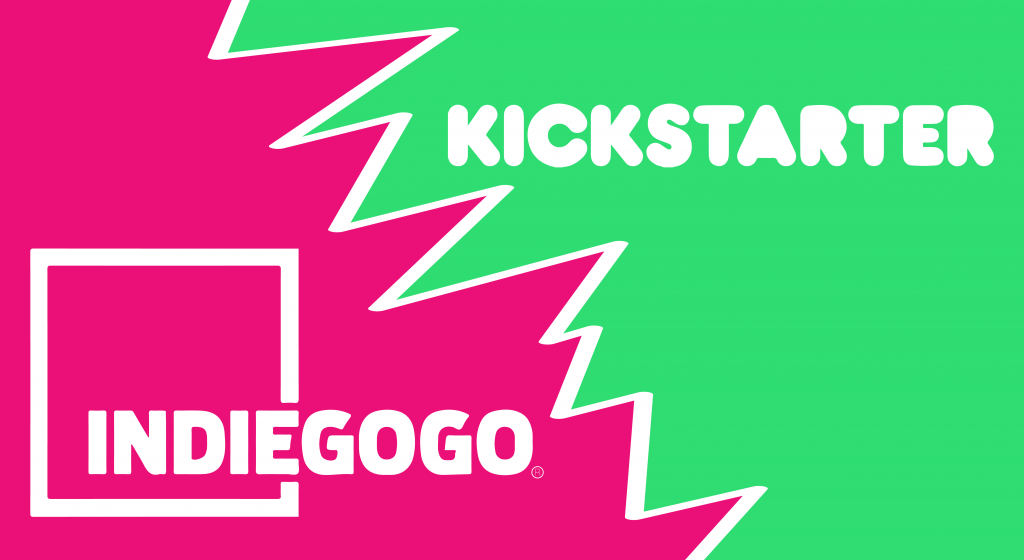[Interview] Comedy Writer Joey Clift Talks About His Animated Short Series ‘Gone Native’ And The Importance Of Positive Representation Of Native People

Don’t be fooled by Joey Clift’s one-of-a-kind cat-themed suit and his affinity for all things nerdy, he is not afraid to fight for what he believes in. And for Clift, his weapon of choice just so happens to be comedy. As a member of the Cowlitz Tribe, Clift is no stranger to microaggressions against Native people. In fact, it’s what inspired him to create his digital animated series Gone Native, which shines a light on common issues that Native people face every day, from racist sports mascots to tired Hollywood tropes about haunted Native burial sites. We’re looking at you, Stephen King.
Clift first made a splash with his digital short Telling People You’re Native American When You’re Not Native Is A Lot Like Telling A Bear You’re A Bear When You’re Not A Bear in 2018. The short film created an unmistakable buzz around the comedy writer and opened the door for his Gone Native series. Clift has made his impression inside the writer’s room as well. He’s written for shows such as Spirit Rangers, Lego Ninjago: Decoded, and This Day In Useless Celebrity History.
Clift sat down with us to highlight the causes that mean the most to him and why it is essential to give a voice to Native storytellers.
Matthew Swigonski: Before this interview, I was kind of stuck in your Reddit AMA just reading every question. It’s a little bonkers how popular that got! How did that feel?
Joey Clift: That was wild. I did the Reddit Ask Me Anything in 2018. Basically, the title of it was like “I’m a Native American person, I grew up on a reservation and I am also a television writer, ask me anything!” And it immediately got around 8,000 upvotes. It was the number one AMA of the day, beating out an AMA with Helena Bonham Carter. Now that’s a compliment! (Laughs)
Matthew Swigonski: No, I would brag about that too!
Joey Clift: Yeah, but you know, seeing that I beat Bonham Carter in upvotes definitely made my nerd heart soar. It was very cool to see that there was such an interest in Native people and Native comedy. And it was also just really cool for me to see that so many of the questions weren’t necessarily just from people from the United States. I feel like there’s a universal interest in information about Native people. There’s a Native-run nonprofit called IllumiNative that shows that 87% of US schools don’t teach Native history past 1900 and yet around the same percentage of people wish they knew more about Native people. And I think that for me, is one of the reasons that I was so excited to make this Gone Native digital series. I think it is a really fun way to kind of bridge the gap between people that don’t really know anything. Giving like a fun entry point into education about Native issues that hopefully act as a really good first step crammed with jokes to educate.
Matthew Swigonski: In that AMA, there were so many questions from people that had almost no idea about Native American culture.
Joey Clift: Yeah, that’s something that I think that I noticed. One of my Gone Native shorts is called Every Time That You Say Something Is Your Spirit Animal, You Have To Give Every Native American Person You Know $25. That short is about inappropriate terms that people use. I feel like whenever I’m in a meeting with an executive or writing on a TV show and someone says “Let’s powwow about it.” I just politely raise my hand and say “Please just call it a meeting. Powwow is a very specific Native thing. Nine times out of 10, those people will say “Oh, I had no idea. Like, wow, I just assumed that powwow and meeting were the same thing.” Don’t call it a powwow unless there’s fried bread and illegal fireworks. (Laughs)
Matthew Swigonski: So where did Gone Native originate? When did you come up with the idea?
Joey Clift: It originally started as a self-contained short that I created called Telling People You’re Native American When You’re Not Native Is A Lot Like Telling A Bear You’re A Bear When You’re Not A Bear. The inspiration for that short was when I saw a few friends posting on Facebook about a protest against the Washington DC NFL team. And somebody commented on that post saying something to the effect of “I just got my DNA test in the mail and it says I’m 150th Indian and I think that team name is fine, so everybody lay off.”
And I think that my initial thought reading that was like, wow, cool take dude. I think that I really wanted to have something to share with that person to explain to them why what they’re saying is not the best attitude toward Native identity and also maybe getting a DNA test does not immediately make you the expert on all things Native issues and give you the ability to speak for all Native people. I mean, I’m Cowlitz and I can’t even speak for everybody in my tribe, so I think I really wanted something to share with this person to kind of educate him. And I’m probably not going to be able to convince this guy to read a 10-page think piece about the complexities of Native identity, but I might be able to get him to watch a two-minute funny comedy short packed with jokes.
And a lot of the feedback that I got from people was that they really liked it and they also were asking about my plans for any more shorts. So I sat down and thought to myself like “Oh, there’s way more weird microaggressions than Native folks deal with that I could use as fodder for these shorts.” So I came up with the idea for the series and then kind of went from there and it’s been like a five-year journey making the shorts, developing partnerships, getting funding, and putting it together. And we released the most recent short in January of this year and then put it all together into a website that we just launched a week or two ago.
Matthew Swigonski: Do you think it’s difficult to deliver a poignant message while still being a comedic short cartoon?
Joey Click: I think that this is something that I’ve kind of learned over the past few years. It’s more fulfilling if you could use your comedy to explore something real. Bojack Horseman’s a show with really great joke density, but it’s also really about depression, self-care, grief and so many other amazing things that the comedy is kind of the candy that they put around. These really deep topics that they use to explore in this cartoon about a talking horse, you know? And so for me, I think that I’ve learned that you can use it [comedy] to push forward social change messages. Like I mentioned earlier, I’m probably not going to get somebody to read a 10-page article about why Native sports mascots are weird, but I can probably get them to watch a two to three-minute comedy video with fun animated characters that are like the peanut butter you put around the dog’s medicine. It really feels like a cool kind of comedic alchemy.
Matthew Swigonski: For the people that watch these episodes and want to learn more, what would you say are the best ways to go about learning about Native American cultures?
Joey Clift: For me, the goal with the website was to act as sort of a good first and second step for people to get a little bit more educated about these issues. It’s tough to encapsulate every aspect of Native identity into a two-minute comedy video, which is mainly just a guy getting mauled by a bear. But with each episode on the Gone Native website, we have a separate page with links to additional articles and resources that people can use to get into a well-educated deep dive into these issues.
I think that I would say to anybody that watches my shorts and wants to learn a little bit more to not be afraid to seek out other Native perspectives on these issues. I’m a Native comedian, there’s a ton of other great Native comedians out there doing amazing work. Native-created TV shows like Rutherford Falls, Reservation Dogs, and Spirit Rangers, which is a Netflix show that I am a writer and consulting producer on. It’s an animated show that I’m really excited about. There are great Native comedians like Brian Bahe, Jackie Keliiaa, and Jana Schmieding. There are amazing Native authors who are doing great work like Steven Graham Jones. Then there’s Joy Harjo, who was a US poet laureate. We’re in the middle of an amazing Native storytelling movement now where there are just great Native TV shows, films, comedians, musicians, and such, where they’re just coming out constantly. It’s just so cool to see. And this is going to sound super basic, but we’re still here, we still exist, and we did not go extinct in 1900.
Matthew Swigonski: Do you think there’s a proper balance of highlighting Native people’s culture in film and TV while at the same time featuring Native American actors who are just playing a character of non-specific origins?
Joey Clift: You brought up a really good point because I feel like we’re kind of in two separate fights right now. One of those fights is showing contemporary Native stories in the media that are not stereotypical and that have Native creatives behind the camera who are helping drive the narrative in front of the camera. Up until recently, it’s almost like the only Native representation that really existed on TV were racist Native sports mascots or Native people from the 1800s getting shot in the back by John Wayne. (Laughs) We need modern Native stories featuring modern Native people, but then in addition to that, you’re exactly right. It’s my goal or my dream to be able to watch a TV show where there’s just a Native person cast as like a grocery bagger or something. There are people proud of their heritage fighting the good fight, but also just Native folks working as doctors, you know? Normalize Native people’s stories just in normal society. Native people in the US census are somewhat similar in population size to the Jewish American population and the Chinese American population, but we’re referred to as an invisible minority because although we make up a good percentage of the United States population, we’re very rarely seen in contemporary roles on TV.
Matthew Swigonski: You’ve spoken out against Native Americans being used as mascots for sports teams, Cleveland and Washington being some of the worst offenders, do you think enough is being done now to reverse that damage?
Joey Clift: I mean, I think the fact that we’ve got Cleveland and the Washington DC NFL team to change their name are all steps in the right direction, but there are still around 2000 school sports teams and brands that have weird Native mascots. There’s still a lot of work to be done and it’s important work. There’s a great research study done by Stephanie Fryberg that basically shows that Native sports mascots and Native stereotypes in the media have a direct negative impact on the self-esteem of Native kids and that’s directly tied into things like low Native student high school graduation and college enrollment rates, which are some of the lowest in the country. And the suicide rates, which are some of the highest in the country. To me, it’s why Native representation is so important because if you’re a Native kid and the only person you see that looks like you in the media is like somebody who is shot in the back by John Wayne or like a white guy in red face doing a tomahawk chop at a football game, that’s not necessarily going to give you a lot of optimism about your existence in the future or even your ability to exist in the present. We are seeing a lot of changes and it’s really positive that these changes are being made but I think that we still have a lot of work to do.
Matthew Swigonski: So what’s up next for you?
Joey Clift: I’m actually the consulting producer on a documentary called Hail to the Breadsticks that’s directed by Donick Cary, who was a former The Simpsons executive producer. Donick is somebody who grew up on the east coast and was a really big fan of the Washington DC NFL team to the point that he had like a wing of his house just for memorabilia of the Washington DC NFL team, so like a lot of racist caricature Native stuff. A few years ago he was watching a football game and Washington scored a touchdown and his son started singing the fight song. And then his son who was eight years old at the time looks to Donick and says “Uh dad, is this racist?” and Donick, who’s not a Native person was just like “Uh…uh, I don’t know.” Then he stopped and kind of realized like “My son’s asking me about racism. That’s like one of the big conversations you should have with your kid.” But he realized that he didn’t really know any Native people. So he started working on this documentary about the blind spots that you develop with age. [This film] illuminates those blind spots and it’s about Native representation and the Native experience and basically just introducing the world to a lot of cool Native folks. There are a lot of really great animated segments throughout the story.
Stream Gone Native now.





